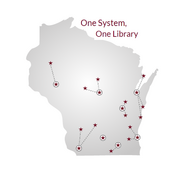How to Read a Scholarly Article
(View Complete Item Description)This is an open access tutorial on how to read scholarly articles created by UW-Madison Libraries. It is interactive and developed in Articulate Storyline 360. It is fully-accessible. Aligned with the ACRL Framework for Information Literacy: Frame - Scholarship as a Conversation. Learning outcomes: 1. identify parts of a scholarly article to determine relevance and quality. 2. articles vary by discipline, and strategies for reading to understand an articleTo access tutorial, select view resource.
Material Type: Interactive








